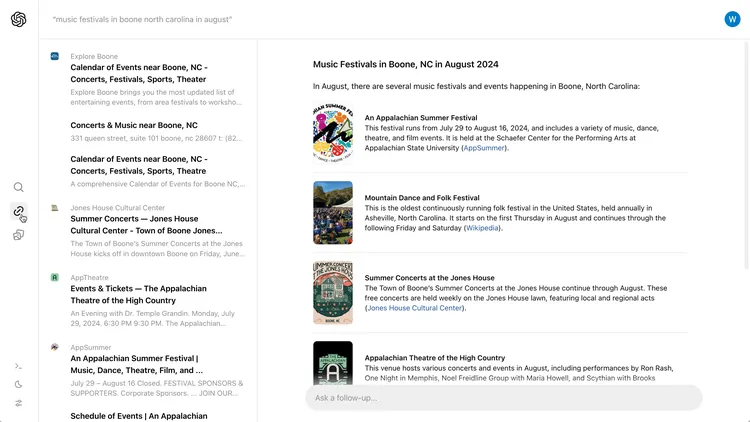OpenAI has announced its entry into the search engine market with SearchGPT, an AI-powered search engine that offers real-time access to information across the internet. Unlike traditional search engines that return a list of links, SearchGPT organizes and summarizes information to make it more accessible and comprehensible for users.
Upon starting a search, users are greeted with a large textbox asking, “What are you looking for?” SearchGPT then provides a summarized response with short descriptions of the most relevant information, followed by attribution links. For example, a search on music festivals would return a summary of key events along with links for further reading. In another instance, it explains the optimal times for planting tomatoes and details various tomato varieties. Users can ask follow-up questions or click on the sidebar to explore additional links. SearchGPT also features “visual answers,” although details on this feature were not available before publication.

Currently, SearchGPT is a prototype and will be accessible to only 10,000 test users at launch. Powered by the GPT-4 family of models, the search engine leverages third-party partnerships and direct content feeds to build its search results. The ultimate aim is to integrate these search features directly into ChatGPT.
This development positions OpenAI as a potential competitor to Google, which has been rapidly incorporating AI features into its own search engine to stay ahead. Additionally, it brings OpenAI into competition with startups like Perplexity, an AI “answer” engine that has faced criticism for allegedly copying publisher content.
In response to these concerns, OpenAI has taken a different approach. The company has collaborated with news partners, including The Wall Street Journal, The Associated Press, and Vox Media, to ensure ethical practices. In a blog post, OpenAI emphasized that publishers will have control over how their content appears in SearchGPT and can opt out of having their content used to train OpenAI’s models while still being included in search results.


